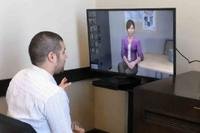A new bill passed by the House of Representatives will address the needs of transitioning veterans by making it easier for them to enter certification and licensing programs. Although traditional educational rhetoric tells students to get college degrees for a stable career and higher earnings, the current job market does not reflect that ideal. Student debt is higher than it's ever been, and Generation Y is facing a tougher job market than their parents did at their age.
While the military provides many opportunities to learn skills useful in the civilian job market, most civilian industries require more than just a high school diploma. Even traditionally blue-collar industries require certifications for numerous types of jobs, and that means potential candidates must complete a certain amount of schoolwork, albeit far less than degree holders.
According to Indian Country Today, the bill was put forward by Ann Kirkpatrick (D-Ariz.) and is titled H.R. 2942. It reactivates an advisory panel that will push the Department of Veterans Affairs to allow for new licensing and certification programs. The panel will also strive to allow veterans to use GI Bill benefits to pay for various training programs and licensing exams related to finding new jobs. To top it all off, panel experts would help devise ways to account for discrepancies in various certification programs from state to state.
Currently, most civilian industries will not recognize military service, despite relevant work experience in the military, as an equivalent to certification or licensing. Even though, for example, an Army mechanic may want to become a civilian auto mechanic, the job may require him to have a specific certification. While this may seem like nonsense to some, these programs provide education past technical know-how. The key difference is that civilian industries operate with different regulations and standards, even between states.
"When veterans are able to put their skills to work, they can support their families, our local businesses thrive and our communities benefit," Kirkpatrick said. "We need to ensure their valuable experience in the military is not lost when they return home. These men and women have so much to offer in a workplace -- not only teamwork, perseverance, loyalty and leadership, but also highly sought technical skills."
Want to Know More About the Military?
Be sure to get the latest news about the U.S. military, as well as critical info about how to join and all the benefits of service. Subscribe to Military.com and receive customized updates delivered straight to your inbox.











